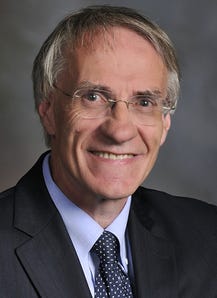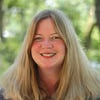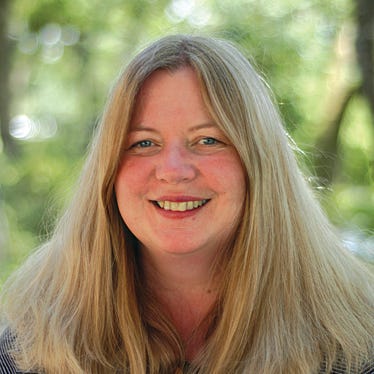
Well-known ag economist David Kohl acknowledges dairy farmers have had it rough during the past four years, but he says a high business IQ will be a difference-maker going forward.
“Agriculture is in the seventh year of an economic reset,” according to Kohl. “Dairy is in the fourth year of an economic reset. Farmers are living with low profit margins and high volatility.”
Kohl, a professor emeritus in the Applied Economics Department at Virginia Tech, was the morning keynote speaker on March 13 at the 2019 PDPW Business Conference at the Alliant Energy Center in Madison. He spoke to an audience of 1,200 dairy producers and industry representatives.
Farmers can’t control commodity prices, trade wars, tariffs or weather. But to be successful today, they need to “learn how to manage with focus and manage around the uncontrollables — manage what you can,” he said.
How to be successful
Kohl listed seven habits of successful producers:
Be goal-focused.
Invest in productive assets.
Make modest family living withdrawals.
Monitor cash flows.
Use five to seven words that mean success.
Follow the management principle of getting better before getting bigger.
Stay positive in the down cycle.
“You’re not going to be successful all of the time, but you will be most of the time,” he said.
Farm real estate historically has been a good investment for farmers, Kohl noted.
“Eighty-three percent of the farm investment sheet is in land,” he said. “Farm real estate appreciated or stayed level 79% of the years between 1910 and 2017. Since 1941, farm real estate appreciated or stayed level 88% of the time.”
But he cautioned that decisions made by the government can change land values in a hurry. “Watch what they do with crop insurance, or that will take 15% out of your land value,” he said.
Interest rates also impact farmland values. Kohl predicts there will be one interest rate increase in 2019 and one interest rate decline in 2019.
“The Fed made a mistake raising interest rates in December,” he said.
Consumer trends
Kohl said food trends are important to watch, especially among millennials (23- to 37-year-olds) and those in Generation Z (3- to 22-years-old).
“We’ve blown it in the dairy industry,” he said. “We allowed non-dairy milk to come in. We’ve done it to ourselves. How do you compete when Walmart uses your product [milk] as a lost leader item? We need to line up with our new consumer base.”
Kohl said today’s consumers want to know where their milk comes from.
“We’re going to have to be proactive,” he said.
 TOP AG ECONOMIST: David Kohl spoke to 1,200 dairy farmers and industry representatives at the PDPW Business Conference in Madison, Wis., on March 13.
TOP AG ECONOMIST: David Kohl spoke to 1,200 dairy farmers and industry representatives at the PDPW Business Conference in Madison, Wis., on March 13.

Kohl said farm family living expenses are leveling off, which is a good thing.
“In many cases, there are too many generations of a family living off the business,” he explained. “Some farmers are paying for Grandma and Grandpa in the nursing home, and they’re supporting adult children.”
Times are changing on the farm, Kohl said.
“Dairy farmers used to be very independent,” he noted. “Dairy farmers of the future will be very interdependent on each other.”
Kohl advised farmers to “take a look at yourself” and seek out educational and development opportunities.
He believes farmers also need to exercise, turn off technology and hear the silence, give back, position themselves for small accomplishments, and sweat the small stuff.
About the Author(s)
You May Also Like






